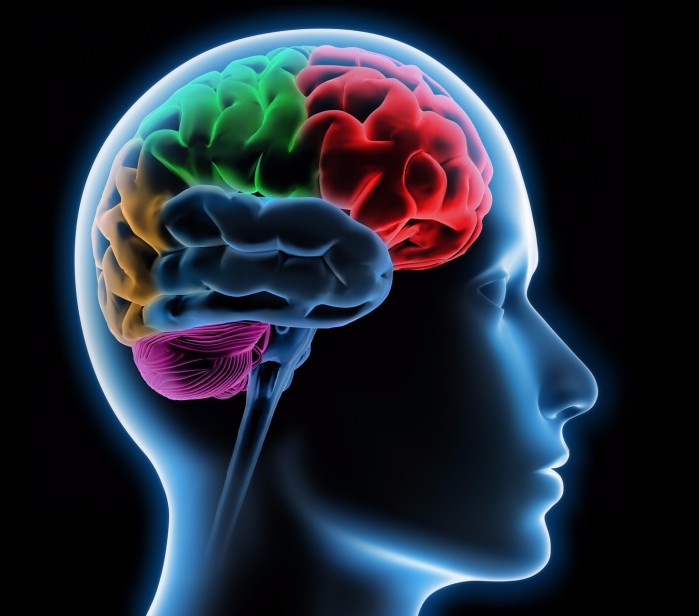The Neurobiology of Climate Change Denial
Much work has already been undertaken to establish the cognitive foundation for the irrationality of climate change denial. Of particular note are the studies undertaken by Lewandowsky, Kahneman, Shapiro and O’Conner, identifying the many cognitive biases that invalidate arguments put forward by those who profess scepticism in the face of the scientific evidence. However, it is not until recently that neuroscientists have turned their attention to the subject of climate change science denial in order to determine whether there are any fundamental neurological indicators that may be used as predictors of such pathological thinking strategies.
Of particular interest is a recent paper1,“The neurobiology of climate change denial”, by Dr Rodriguez Azuela et al, of the Positano Behavioural and Cognitive Research Unit. By revealing significant neural pathologies, the paper promises to throw new light on the puzzling irrationality that appears so intransigent to those who would strive to engage the public’s support for climate change mitigation. In Dr Azuela’s own words:
“We were interested to see how the pattern of neural activity differed between climate change deniers and those who accept the scientific consensus. In particular, we looked for differences whilst they considered the evidence put forward for anthropogenic climate change. For this purpose, subjects who had declared varying degrees of scepticism were confronted with images totemic of climate change evidence and were asked to offer their personal assessment whilst undergoing functional Magnetic Resonance Imaging (fMRI).”
The fMRI images, which are basically snapshots of the brain in action, revealed notable differences between the deniers and those who accepted the scientific consensus. Dr Azuela:
“Whilst there were no deterministic differences between the groups, there were clear statistical variances that suggest a characteristic neuropathology. In the case of the deniers, counter to the normal pattern of activity, significantly activated regions included the left caudate, bilateral prefrontal cortex (PFC) and para-hippocampal gyri. Activations in the putamen and the globus pallidus were significant at p<0.005 (uncorrected), but no activation was found in the nucleus accumbens.”
To the layman, the significance of such variances is obscure. However, to the neuroscientist the coloured patterns on an fMRI are as revealing as any lie detector. As Dr Azuela explains:
“Curiosity levels modulate activation in such memory-related areas, so these results indicate a significantly reduced level of the curiosity one would normally associate with deferred judgment ideation.”
In other words, the deniers were simply unreceptive to the evidence presented and, instead, were activating brain regions associated with memory recall in order to entrench their preconceived ideas. These findings are in keeping with the psychologists’ concept of the availability heuristic, a cognitive bias in which new evidence is too readily rejected in favour of experiences that carry personal, emotional salience.
Such revelations should come as no surprise to those who have made it their business to study the logic employed by climate change deniers. However, other results were perhaps more surprising. Dr Azuela again:
“Of more concern, however, were the modulations of activity found within the orbital frontal cortex, insula, anterior and posterior cingulate, amygdala and anterior superior temporal gyrus, since they demonstrated a statistical alignment with the functional neuroanatomy of psychopathy.”
But before you choose to accuse all climate change deniers of being psychopaths, Dr Azuela has a word of warning:
“It would be quite wrong to label climate change deniers as psychopaths based upon the results of this study. Psychopathy exists as a spectrum of human behaviour; in this instance the fMRI results simply indicate an unusually low paralimbic reaction to a perceived threat.”
In other words, the climate science deniers aren’t nut jobs after all—they just don’t care enough. But I’ll leave the final word to Dr Azuela:
“In reality, studies2 have shown that confirmation bias poses the greatest challenge to cognitive performance. Those that suffer this bias will accept what they read unquestioningly, whilst others remain instinctively suspicious. Doubt should have kicked in at the suggestion that Positano has a Behavioural and Cognitive Research Unit. However, if you still failed to recognize the inauthenticity of this article, perhaps you should now be questioning any faith you might have had in the scientific consensus.”
References:
1 Azuela, R., Ho, M.T., Malaxic, T., Bernstein, F., (2018), “The neurobiology of climate change denial”, Journal of Environmental and Economic Studies, Issue 16[2].
2 Westen, D.; Blagov, P. S.; Harenski, K.; Kilts, C.; Hamann, S., (2006), “Neural bases of motivated reasoning: An fMRI study of emotional constraints on partisan political judgment in the 2004 U.S. presidential election”, Journal of Cognitive Neuroscience, Massachusetts Institute of Technology, 18 (11).
‘I’ve spent most of the past year alternating between soul-crushing despair and headstrong hope.’
‘For now at least, the good days are enough to keep me going. But there are also days when I’m paralyzed.’
‘My support network has become those who are going through the same emotional crisis.’
#
Wait, maybe this is the reason Holthaus can’t sleep! Claim: ‘Climate Change Wrecking Your Sleep’ – Study finds ‘sleep loss resulting from global warming’
‘Ecological grief as a mental health response to climate change-related loss’ — The journal Nature Climate Change – April 2018
The authors of the new study claim: “We anticipate, along with a small but growing number of scholars, that ecological grief will become an increasingly common human response to the losses encountered in the anthropocene.”

Study Makes Bizarre Claim That ‘Global Warming’ Could Alter People’s Personalities
A new Columbia Business School study is out with the latest bizarre claim about man-made global warming — it could alter people’s personalities. “As climate change continues across the world, we may also observe concomitant changes in human personality,” reads the study, published in the journal Nature on Tuesday.

‘Good Grief!’ Climate Change Makes Warmists Depressed & Gives Them ‘Literal Nightmares’
Foreign Affairs Mag: ‘The Problem With Climate Catastrophizing – The Case for Calm’ (Written by Oren Cass)
Climate researchers and activists, according to a 2015 Esquire feature, “When the End of Human Civilization is Your Day Job,” suffer from depression and PTSD-like symptoms.
The Washington Post offers “the 7 psychological reasons that are stopping us from acting on climate change.”
‘Catastrophism can also lead to the trampling of democratic norms. It has produced calls for the investigation and prosecution of dissenters and disregard for constitutional limitations on government power.’
‘And yet, such catastrophizing is not justified by the science or economics of climate change. Working with a catastrophic mindset and a century-long timeline, one can construct an apocalyptic scenario from almost any problem.’
Under a political advocacy campaign launched Wednesday, a coalition of physician groups will tell the public that their health is threatened by catastrophic man-made global warming, also called climate change. Participating doctors will also urge government action to reduce the damage believed to be caused by human emissions of greenhouse gases.
On Wednesday, the consortium issued a report titled, “Medical Alert! Climate Change Is Harming Our Health.”
“Here’s the message from America’s doctors on climate change: it’s not only happening in the Arctic Circle, it’s happening here,” Sarfaty said in the press release. “It’s not only a problem for us in 2100, it’s a problem now. And it’s not only hurting polar bears, it’s hurting us.”
Sarfaty has made numerous contributions to Democratic candidates, including former president Barack Obama, 2016 presidential candidate Hillary Clinton and Massachusetts Senator Elizabeth Warren, according to the Federal Election Commission’s website. The consortium is run by The George Mason University Program on Climate & Health.
#
Climatologist Dr. Roger Pielke Sr. responded with a ‘bullshit meter’ rating the claim as ‘total BS’
Warmist Meteorologist: ‘Climate Change’ and Trump Have Driven Me to Therapy
Meteorologist Eric Holthaus: ‘I know many people feel deep despair about climate, especially post-election.” And it’s because of this, “There are days where I literally can’t work,” and “We don’t deserve this planet.’






